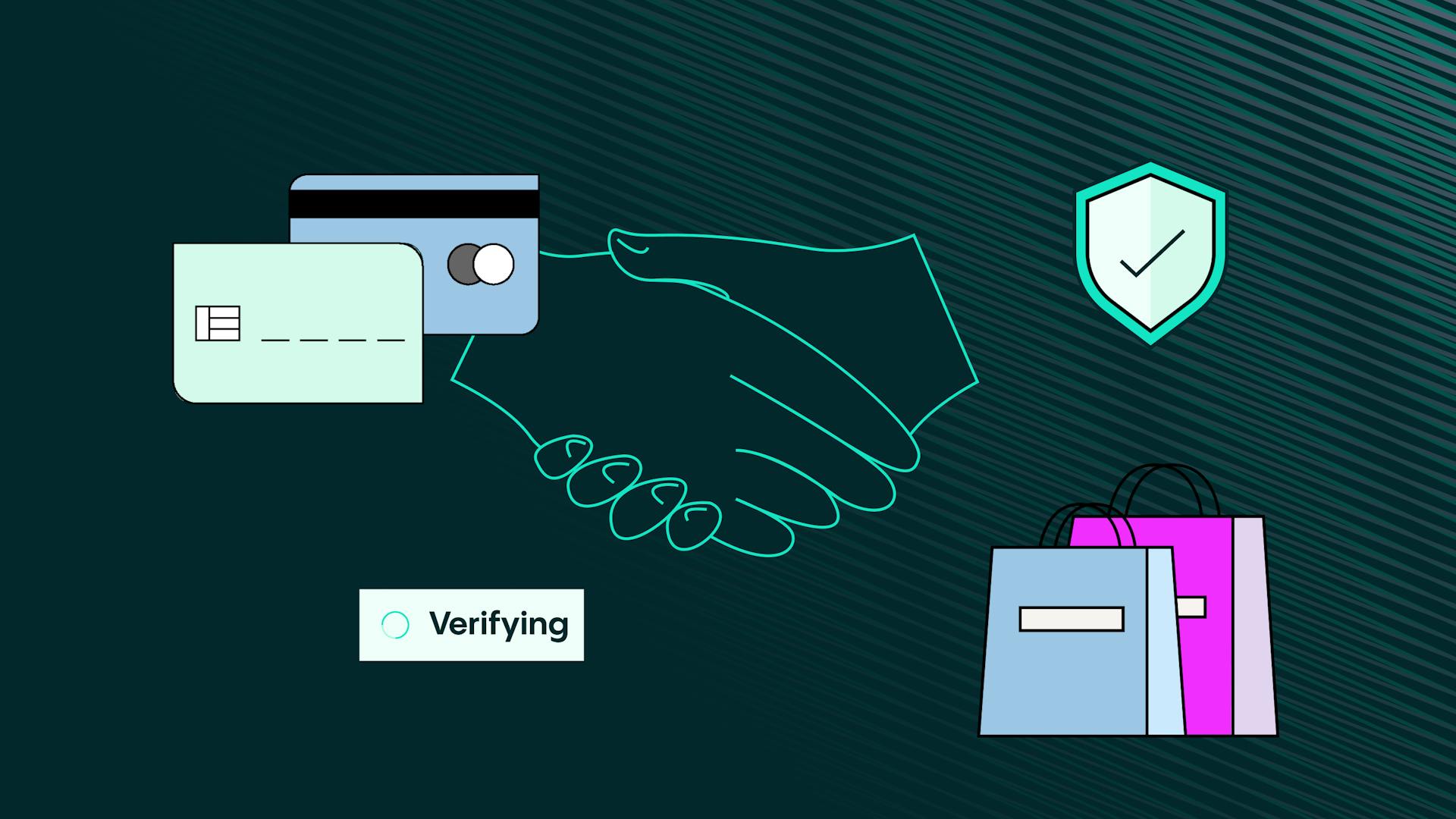How to ensure trust in a marketplace: Winning the battle for consumer confidence
Marketplaces are engaged in an ongoing fight to win and maintain customer trust. This challenge is complicated by the rapid growth of customer onboarding and transaction volumes, which even the biggest marketplaces are struggling to deal with effectively.


Chris Hooper
Marketplaces are engaged in an ongoing fight to win and maintain customer trust. This challenge is complicated by the rapid growth of customer onboarding and transaction volumes, which even the biggest marketplaces are struggling to deal with effectively. In 2023 alone, Amazon recorded a total gross merchandise value (GMV) of approximately $729 billion across its 22 operating domains worldwide, with Amazon.com accounting for more than half of that amount ($375.1 billion).
Trust is the foundation of every successful online marketplace. With increasing transaction volumes and evolving fraud tactics, businesses must prioritize consumer confidence to thrive. In this blog, we explore the growing threats to marketplace security, the importance of trust as a competitive advantage, and the strategies leading platforms use to safeguard their users. From identity verification to AI-powered fraud prevention, we outline actionable solutions that can help marketplaces build a safer, more reliable ecosystem for buyers and sellers alike.
The growing threat of fraud in marketplaces
According to Veriff’s Fraud Report, e-commerce now experiences more authorized fraud than financial services, exceeding the global average by 1.8 times. As fraudsters exploit vulnerabilities in high-volume marketplaces, businesses must differentiate themselves by investing in robust fraud prevention.
"E-commerce marketplaces are the real outlier in fraud growth. Being largely unregulated and handling global transactions in the trillions, these sites present a tempting target for fraudsters. These figures should serve as a wake-up call for platforms to prioritize fraud prevention strategies." – Ira Bondar, Senior Fraud Group Manager, Veriff´
This trend underscores the growing security challenges in online marketplaces and highlights the urgent need for advanced fraud prevention. Building trust in digital transactions is essential, as many users remain cautious despite their prevalence. Strengthening fraud defenses and implementing secure payment solutions can help create a safer environment for both buyers and sellers.
The business case for trust
For marketplace leaders and risk professionals, trust is not just a compliance requirement—it’s a competitive advantage. Gartner projects that by 2025, proactive customer interactions will outnumber reactive ones, highlighting the shift towards anticipating customer needs to foster trust.
Key benefits of prioritizing trust:
Customer retention
Users are more likely to return to a marketplace they trust.
Revenue growth
A trusted marketplace enjoys higher conversion rates and lower churn.
Risk mitigation
Implementing identity verification (IDV) reduces fraudulent transactions and ensures compliance.
Leading marketplaces and their security measures
Amazon, eBay, and Facebook Marketplace all implement various verification mechanisms to build consumer trust. In 2023, Amazon was the most visited online marketplace globally, averaging about 4.8 billion visits per month. eBay followed with 1.2 billion visits, demonstrating the importance of trust in maintaining customer engagement.
Key verification measures by major marketplaces:
Amazon
Requires sellers to provide their tax ID, bank account information, and additional documentation for high-volume sellers.
eBay
Verifies sellers through phone number and credit card details.
Facebook Marketplace
On the other hand relies on Facebook profiles and ratings to build trust.
Artificial intelligence (AI) and machine learning (ML)
Increasingly being used to detect fraudulent activity, such as the sale of counterfeit products and the submission of fake reviews. Amazon, for example, uses ML to identify fake reviews by analyzing review patterns and user behavior.

“ecommerce marketplaces are the real outlier of our data this time around. We did notice things trending this way in 2023, but 2024 has seen the number of fraud attacks on ecommerce sites go through the roof. Being largely unregulated and with global transaction volumes in the trillions of dollars, these sites present a tempting target for fraudsters and these figures should serve as a wake-up call for platforms to differentiate themselves by adding in the type of fraud prevention Veriff can offer.”
Global AI trends in fraud prevention: A double-edged sword
Artificial intelligence (AI) and machine learning (ML) are increasingly being used to detect fraudulent activity, such as the sale of counterfeit products and the submission of fake reviews. Amazon leverages ML to identify fake reviews by analyzing review patterns and user behavior. However, online fraud remains a significant challenge. Veriff's US Fraud Industry Pulse Survey 2025 reveals that 72% of US businesses have experienced an increase in online fraud over the past 12 months. Over 60% of respondents have noticed an increase in AI-driven fraud attacks, while 64% are leveraging AI for fraud prevention—highlighting its dual role as both a weapon for fraudsters and a safeguard for businesses. This trend is reflected globally, according to our survey. In the UK, 60% of decision-makers already use AI/ML for fraud prevention, with another 25% planning to adopt it within the next year. In Brazil, 69.5% are utilizing the technology, and an additional 16.5% expect to follow suit in the coming 12 months. Fraud rates in Latin America are skyrocketing, reinforcing the need for stricter marketplace security measures. According to "State of Scams in Brazil 2024" report from the Global Anti-Scam Alliance (GASA), in collaboration with ScamAdviser and Whoscall, scams are wreaking havoc on millions of Brazilians. In Brazil alone, scams resulted in losses amounting to approximately BRL 297.7 billion ($54 billion) in the past 12 months, according to the Global Anti-Scam Alliance (GASA). Similarly, Mexico faces an annual loss of 293 billion MXN due to scams, with identity theft being one of the most common fraud types.

Identity Verification: The key to marketplace security
A market-leading IDV solution allows marketplaces to onboard users seamlessly while mitigating risk. Veriff’s AI-driven IDV technology verifies identities in just six seconds with 99.99% accuracy, reducing fraud risks while improving user experience.
Key benefits of Veriff’s IDV solutions:
- 30% Faster customer onboarding
- Higher conversions with seamless verification.
- Comprehensive document coverage: Supports over 12,000 document types in 48 languages.
- Advanced fraud prevention: AI-powered network, device, and biometric analysis to detect fraud patterns.
Adopting a market-leading Identity Verification (IDV) solution is a clear choice for marketplaces looking to combat fraud while maintaining trust.
The business case for marketplace trust
Marketplace trust is directly linked to business success. A study by KPMG found that 51% of consumers trust companies that make it easy to contact the people behind the company. Additionally, 66% of respondents consider excellent customer support the most important factor in driving loyalty.
Trust is an essential component of long-term marketplace success, influencing:
Customer retention
- Users are more likely to return to a marketplace they trust.
Revenue growth
- A trustworthy marketplace experiences higher conversion rates.
Risk mitigation
- Fraudulent transactions and scams decrease when IDV measures are implemented.
How can Veriff help?
Veriff supports marketplace growth by offering seamless identity verification solutions that enhance user experience, reduce verification costs, and ensure regulatory compliance. Their services include extensive document coverage across multiple languages, real-time feedback to improve user conversion rates, and fraud prevention through device, network, and biometric analysis. Additionally, Veriff’s team of specialists provides expert guidance to help businesses deliver a secure and efficient verification process for their users.
Document coverage
Veriff provides extensive document coverage, supporting over 12,000 document types in 48 languages and dialects. This broad coverage is essential for businesses looking to expand into international markets, ensuring seamless identity verification regardless of a user’s location. By accommodating diverse documentation, Veriff helps marketplaces onboard users efficiently while maintaining compliance with local regulations. This comprehensive approach eliminates barriers for businesses aiming for global reach.
Real-time feedback
Veriff enhances the user verification experience by providing real-time feedback during the process. This feature helps improve user conversion rates and reduces drop-offs by guiding users to complete verification successfully on the first attempt. By addressing potential issues instantly, Veriff ensures a smoother and faster verification process, which is crucial for marketplaces that rely on quick and secure onboarding. The result is increased customer satisfaction and a higher success rate in user verification.
Fraud prevention
To protect marketplaces from fraudulent activities, Veriff utilizes advanced fraud prevention techniques. These include analyzing device, network, and document indicators, along with biometric markers, to detect and mitigate identity fraud. By identifying suspicious behaviors such as multi-accounting and stolen identity scams, Veriff helps businesses maintain a trustworthy and secure environment. This proactive fraud detection system minimizes risks and enhances the integrity of marketplace transactions.
Experience and expertise
Veriff’s team consists of highly trained Verification Specialists, legal professionals, and document experts who provide businesses with industry-leading support. Their experience ensures that companies receive tailored solutions for identity verification challenges, helping them comply with regulations while offering a seamless user experience. With this level of expertise, Veriff enables marketplaces to build trust with their users, creating a secure and efficient ecosystem for online transactions.
Bolt partners with Veriff to enhance secure and seamless car rentals
Bolt, a leading European mobility super-app with over 150 million customers in more than 45 countries, partnered with Veriff to enhance user onboarding for Bolt Drive, their short-term car rental service. This collaboration ensures that users meet specific criteria—being over 20 years old, possessing a valid category B driver's license, and having at least 12 months of driving experience—before accessing the service. By integrating Veriff's identity verification services, Bolt has achieved a frictionless and secure onboarding process, effectively reducing fraud and enhancing safety for both customers and other road users. Additionally, Bolt leverages Amazon Web Services' global cloud platform to maximize speed and reliability across their services
Final thoughts: Why trust matters now more than ever
For CEOs, risk officers, fraud prevention teams, and regulatory leaders, marketplace trust is directly linked to revenue, customer retention, and security compliance. Marketplaces that fail to invest in AI-powered identity verification and fraud prevention risk losing consumer confidence and facing regulatory scrutiny.
The question isn’t whether trust matters—it’s how quickly your marketplace can implement the right solutions to stay ahead.
Learn me
Get the latest from Veriff. Subscribe to our newsletter
Veriff will only use the information you provide to share blog updates.
You can unsubscribe at any time. Read our privacy terms.



